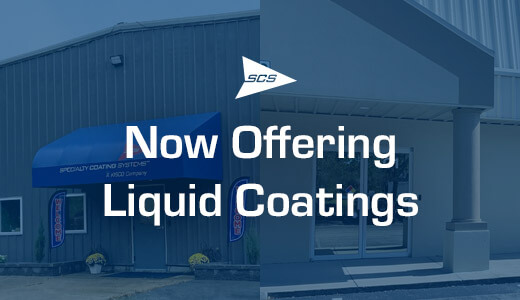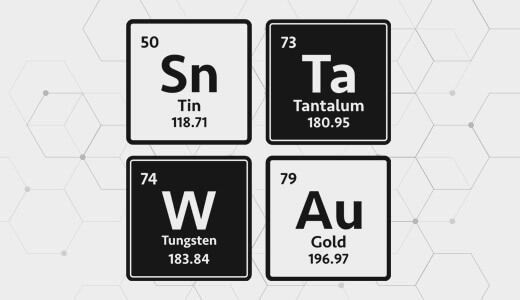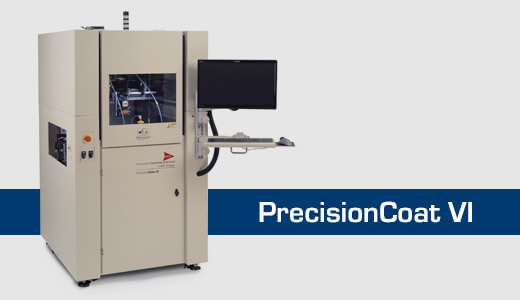SCS Blog
Recent SCS Blogs
What Can Be Parylene Coated?
We often receive the question “what can be Parylene coated?” With over 50 years of applications experience, the list of potential products and substrates that can be coated is virtually endless! A quick look at some of the different items that SCS has coated with Parylene over the years reveals, more often than not, that... Read More >>

SCS Celebrates 50 Years of Innovation and Leadership
SCS is proud to announce the celebration of its 50th anniversary. As the direct descendant of the companies that originally developed Parylene and made it a commercial success, SCS has established a legacy of innovation and leadership in the conformal coatings industry. In 1971, Nova Tran Corporation was established in Clear Lake, Wisconsin, after... Read More >>

SCS Expands Solutions Portfolio to include Liquid Coatings
With the acquisition of Diamond-MT (DMT) in March, SCS is pleased to expand its coatings portfolio to include liquid coating services. Liquid coatings, including acrylics, silicones, urethanes, epoxies and ultrathin coatings, are currently being serviced through the company’s facilities in Johnstown, Pennsylvania, and Melbourne, Florida. These facilities are ISO 9001:2015 and AS9100 Rev. D certified... Read More >>

Parylene’s Critical Role in Hayabusa2 Space Mission
In December 2014, the Hayabusa2 spacecraft, designed and operated by the Japan Aerospace Exploration Agency (JAXA), was launched from Tanegashima Space Center in Japan. Its mission was, and is, to travel to the asteroid Ryugu, collect samples from the surface and interior of the asteroid and return those samples to earth. Following its successful launch,... Read More >>

SCS Complies with Conflict Mineral Regulations
One of the common inquiries SCS receives is in regard to conflict mineral regulations. These regulations are part of an international effort to reduce the trade of resources that could finance armed groups in politically unstable areas and fuel forced labor and other human rights abuses. The regulations cover minerals and metals known as 3TG... Read More >>

Conformal Coatings “Quietly” Meet the Needs of the Electric Vehicle Market
As the world transitions toward electric vehicles (EV) and a reduced carbon footprint, SCS is playing an active role in supporting the market’s current and future growth. As alluded to in its name, electric vehicles are full of electronics, and those advanced electronics and components require increased protection. Conformal coatings are a silent partner in... Read More >>

SCS Introduced PrecisionCoat VI at Assembly Show
SCS is pleased to announce the introduction of its new machine platform for coating and dispensing, the PrecisionCoat VI. The PrecisionCoat VI debuted at The Assembly Show, which took place October 26-28, 2021, in Rosemont, Illinois. SCS offered live demonstrations of the system in their booth. Building upon the outstanding reliability and precision of its... Read More >>

Silicone vs. Urethane Conformal Coating
Silicone and urethane stand out as prevalent conformal coating types due to their protective attributes. The superiority between the two coatings hinges on your specific application. Below is an exploration of the advantages and disadvantages of each type. Silicone Conformal Coating Benefits Most common silicone coatings have continuous operating temperature ratings of 200ºC. This is... Read More >>
Conformal Coating vs. Potting
There are two common methods for circuit board protection, conformal coating and potting. Depending on the project, the use of one of these two options typically provides sufficient protection to a circuit board. What is Conformal Coating? Conformal coating is a protective, nonconductive dielectric layer that is applied onto the printed circuit board assembly to protect... Read More >>
5 Common Misconceptions of Parylene
There are often many questions about Parylene, its properties and its ability to protect various components across industries. There are also many Parylene misconceptions. Below is a look at the five leading misconceptions. 1. Parylene does not stick to metal. This misconception is based in truth. One drawback of this coating is that its chemical... Read More >>

